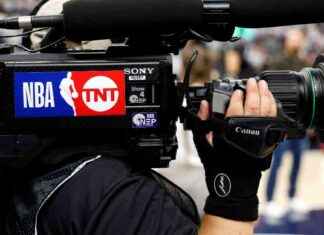Drawing scores of black veterans and art fans each year, Chicago’s iconic Victory Monument at 35th Street and King Drive in Bronzeville is more than a tribute to the sacrifice of African-Americans serving in the military. The 22-foot bronze and white granite edifice also commemorates those lives lost in World War I.
But this April — the 100th anniversary of the United States’ entry into the war — the Victory Monument and hundreds of other outdoor World War I memorials scattered around Illinois, from commemorative plaques to decorative doughboy headstones, could receive anything from a thorough cleaning to a detailed restoration thanks to a $100,000 donation from the Pritzker Military Foundation. Indeed, the Victory Monument has been eyed repeatedly for restoration since it was unveiled in 1927.
This week, Landmarks Illinois announced the creation of the World War I Monument Preservation Grant Program from the Pritzker donation in an effort to help restore monuments and memorials to their former glory. The grant will consist of four rounds of grant funding through 2018, with applications for the first round of funding due May 15.
But first, staff at Landmarks Illinois, a Chicago-based group that advocates for historic preservation, will conduct a statewide survey in hopes of creating a more comprehensive list of World War I monuments and memorials.
"We’re just getting started on the survey — we started in January — and we’re really relying on people in the community to let us know what’s in their community," said Suzanne Germann, the group’s director of grants and easements.
So far, officials estimate there are at least 230 monuments and memorials throughout the state, from plaques to free-standing statues, with about 50 of those statues in the Chicago area. But that number could skyrocket if local historians and World War I buffs uncover a wealth of unknown or forgotten World War I-era relics.
But cash to clean or restore the monuments comes with a catch: Organizations and municipalities hoping to get a share of the grant money must also put up their own money.
LGBTQ vets’ monument is planned for Boystown Leonor Vivanco
An advocacy group is planning to install a monument honoring LGBTQ veterans and active service members at the northwest corner of Halsted and Addison streets in Chicago’s Boystown neighborhood.
The Chicago chapter of American Veterans for Equal Rights, an organization dedicated to the equal and…
An advocacy group is planning to install a monument honoring LGBTQ veterans and active service members at the northwest corner of Halsted and Addison streets in Chicago’s Boystown neighborhood.
The Chicago chapter of American Veterans for Equal Rights, an organization dedicated to the equal and…
(Leonor Vivanco)
While Landmarks Illinois expects to hand out $5,000 to $6,000 on each restoration, it is "willing to go much higher if it’s a significant monument and they have the capability of matching it and managing the grant," Germann said.
Known as the Great War, the four-year conflict inflamed the whole of Europe and is noted for its striking brutality, the first use of chemical weapons and exhaustive trench warfare that left more than 37 million soldiers and civilians dead.
Germann, who said her own knowledge about the war has blossomed since taking on the project, is hopeful the grant program will spur interest in the war and in long-forgotten community relics that often go unrecognized by younger generations.
"Hopefully that’s what will happen with this program — if people start to think, ‘Oh, maybe I should be looking at that and paying more attention,’" she said. "Hopefully it opens people’s eyes as it has mine to look around and see what things are dedicated to."
wlee@chicagotribune.com
Twitter @MidNoirCowboy
Our editors found this article on this site using Google and regenerated it for our readers.







